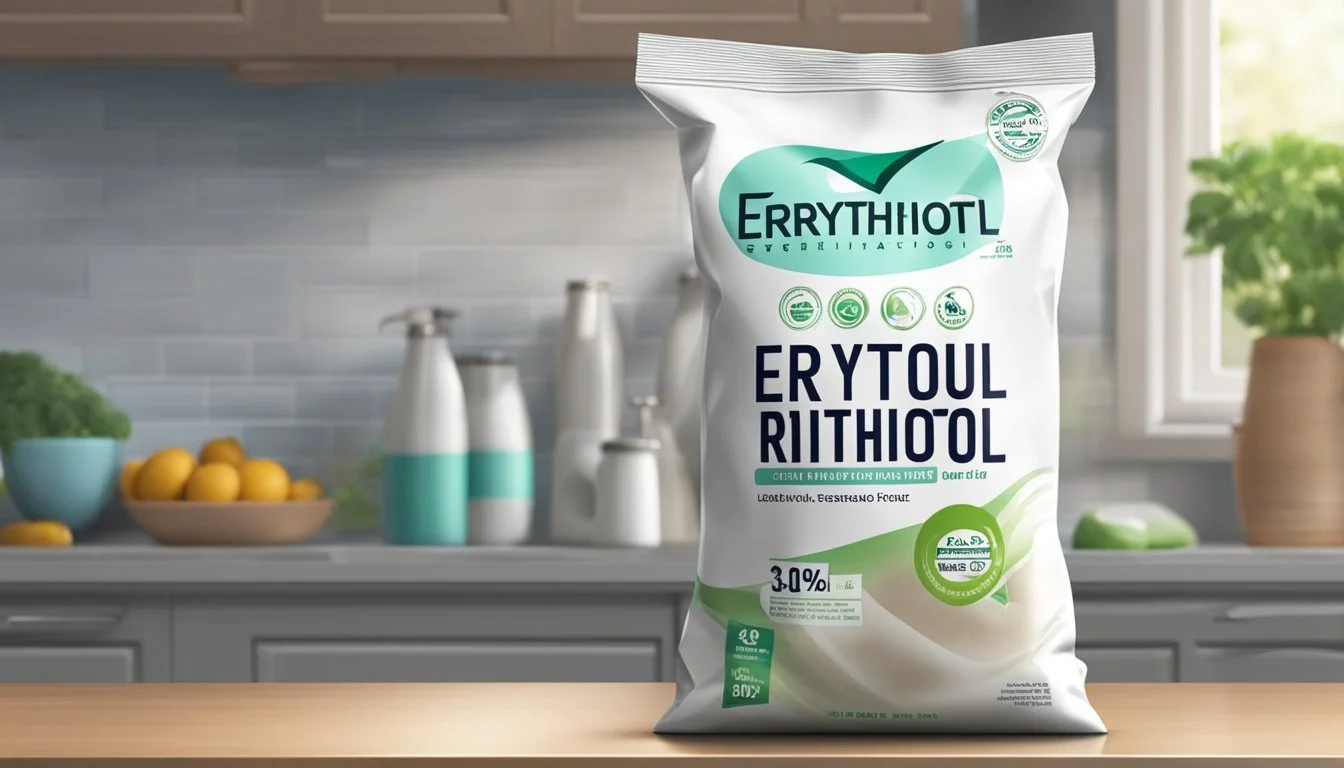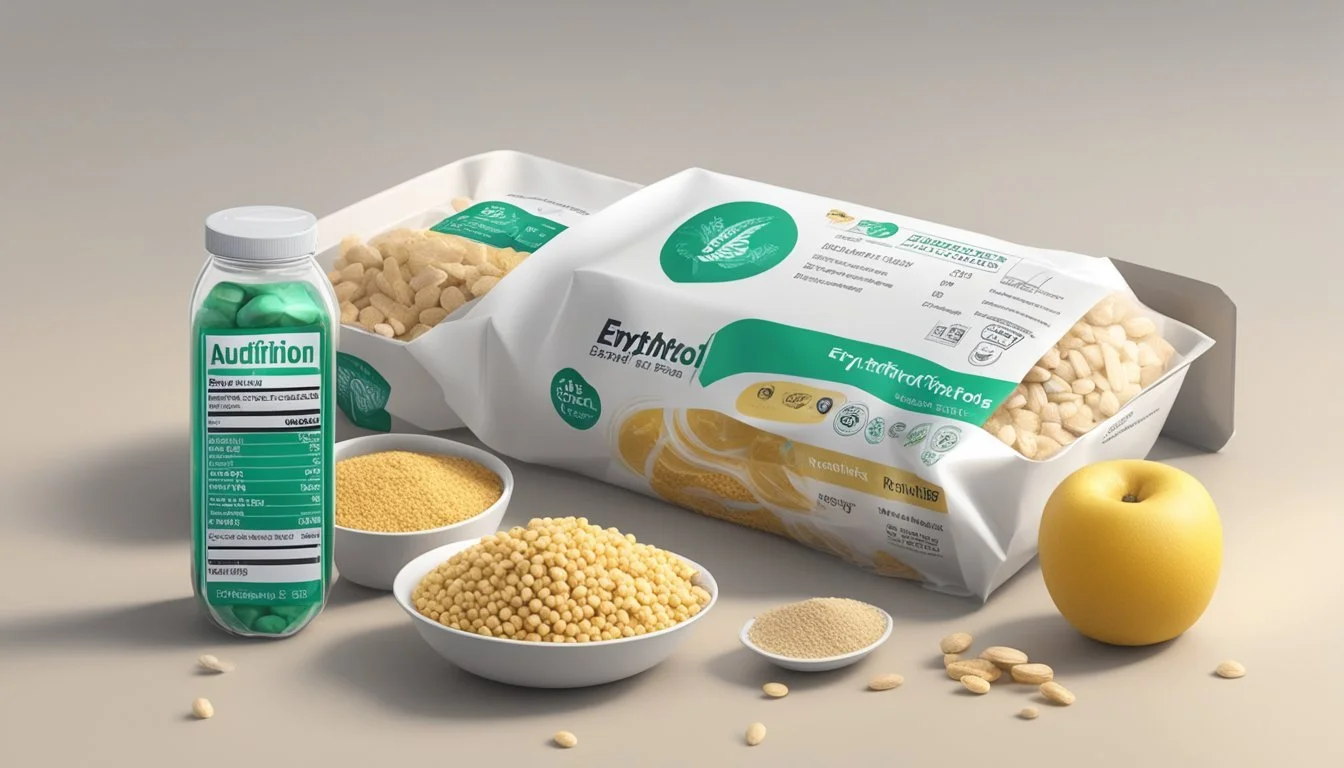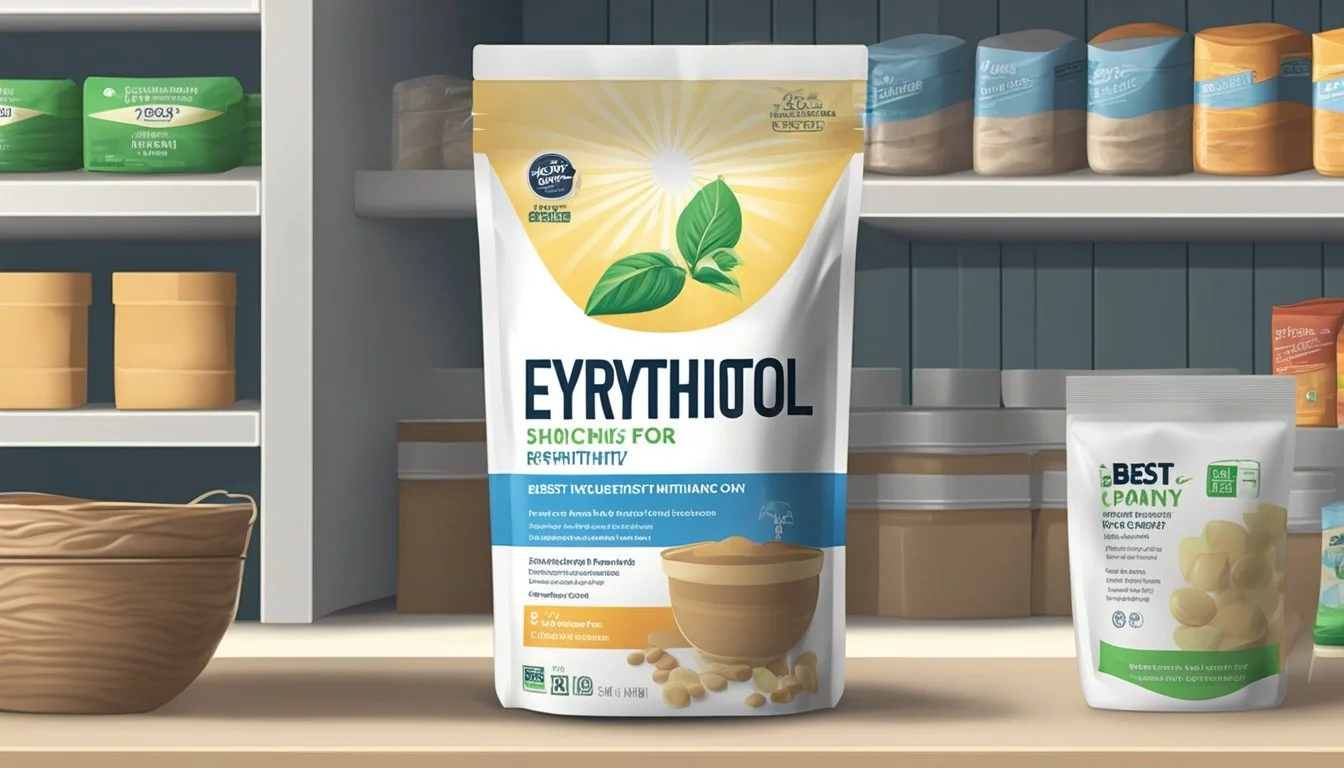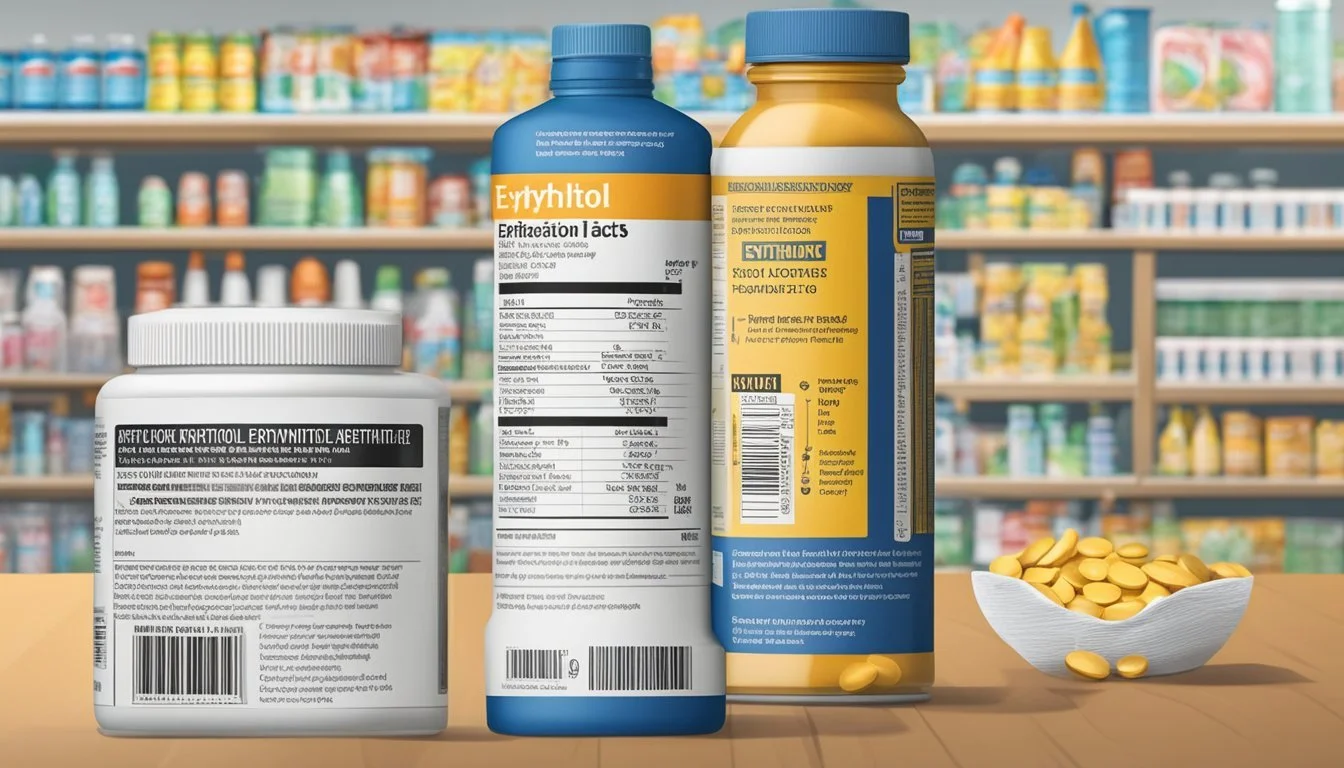Does Erythritol Go Bad?
Shelf Life and Storage Tips
Erythritol, a popular natural sugar substitute, has become a significant ingredient in many "sugar-free" and "keto-friendly" products. Known for its nearly zero calories and low glycemic index, erythritol is widely favored by those looking to reduce sugar intake. One key question for users is whether erythritol goes bad over time.
As a sugar alcohol, erythritol is remarkably stable. It does not ferment or spoil like other carbohydrate-based sweeteners, making it a durable option. Stored properly in a cool, dry place, it can maintain its quality for years without losing its sweetness.
However, it is essential to consider proper storage to ensure it remains in optimal condition. Keep erythritol in an airtight container to avoid moisture absorption, which can lead to clumping. This makes it a reliable and long-lasting alternative for those looking to manage their sugar intake healthily.
Understanding Erythritol
Erythritol is a sugar alcohol that is commonly used as a low-calorie sweetener. It is naturally found in certain fruits and is industrially produced through fermentation processes involving yeast.
Chemical Properties
Erythritol is a type of sugar alcohol, also known as a polyol. Its chemical formula is C4H10O4. Unlike other sugar alcohols, erythritol has a smaller molecular weight and structure, which contributes to its unique properties.
It has 0.24 calories per gram, significantly fewer than sugar, and provides about 70% of sugar’s sweetness. Erythritol does not cause a spike in blood glucose or insulin levels, making it a popular choice for people with diabetes. Additionally, it resists fermentation by oral bacteria, thus reducing the risk of tooth decay.
Natural Sources and Production
Erythritol is naturally present in small quantities in various fruits such as grapes, melons, and pears. Though found in nature, commercial production typically involves a fermentation process. Specific types of yeast, such as Moniliella pollinis, are used to ferment glucose derived from corn or wheat starch.
This method is efficient and produces a high yield of erythritol. The final product is then purified and crystallized for use in various food products. Due to its relatively good tolerance compared to other sugar alcohols, erythritol is a favored ingredient in sugar-free and reduced-calorie food and beverages.
Health Effects of Erythritol
Erythritol is a sugar substitute with some notable impacts on health, including its effects on blood glucose, dental health benefits, digestive issues, long-term health implications, and its role in weight management.
Impact on Blood Glucose and Insulin
Erythritol is known for its minimal impact on blood glucose and insulin levels. Unlike regular sugar, erythritol does not cause blood sugar spikes, making it suitable for diabetics or those managing insulin sensitivity. Studies indicate that erythritol has a glycemic index of zero, meaning it does not elevate blood sugar.
This attribute makes it a preferred sweetener for those looking to manage or reduce the risk of diabetes and metabolic syndrome. Because it does not require insulin for metabolism, it helps in maintaining stable blood sugar levels.
Dental Health Benefits
Erythritol also offers dental health benefits. Unlike regular sugar, which feeds harmful bacteria in the mouth, erythritol does not contribute to the formation of dental plaque. It has been shown to reduce the risk of cavities and tooth decay.
One study demonstrated that erythritol inhibits the growth of Streptococcus mutans, a bacterium primarily responsible for cavity formation. Additionally, erythritol may help in reducing plaque formation, consequently lowering the risk of dental diseases.
Effects on Digestion
Consuming erythritol in large quantities can lead to digestive issues. While generally better tolerated than other sugar alcohols like xylitol and sorbitol, erythritol can still cause symptoms such as bloating, gas, and diarrhea.
This is because erythritol is not fully absorbed by the small intestine and ferments in the colon. Although these gastrointestinal effects are usually mild, individuals with sensitive digestive systems may experience discomfort when consuming high amounts.
Long-term Health Implications
There has been some concern about the long-term health implications of erythritol consumption. Recent studies indicate potential risks associated with increased levels of erythritol in the blood, including a higher risk of heart attack and stroke due to its effect on platelet stickiness.
However, these findings are not yet conclusive and require further research. It's essential for consumers to balance erythritol intake with other dietary choices to mitigate any potential risks.
Weight Management
Erythritol can aid in weight management due to its low calorie content. It contains just 0.24 calories per gram, significantly less than regular sugar, which has 4 calories per gram. This makes erythritol an attractive option for those looking to reduce calorie intake and manage body weight.
By providing sweetness without the extra calories, erythritol can help in reducing overall dietary fat and preventing obesity. It is often used in diets aimed at weight loss or maintenance, contributing to better metabolic health.
Nutritional Profile and Use in Foods
Erythritol is a low-calorie sugar substitute, often used in various foods due to its sweetness and reduced caloric content compared to sugar. This section explores its nutritional value and common culinary applications.
Serving Size and Caloric Content
Erythritol contains about 0.24 calories per gram, significantly less than the 4 calories per gram found in regular sugar. It provides roughly 70% of the sweetness of sugar, making it a preferable option for low-sugar and low-calorie diets.
A standard serving size is typically around one teaspoon (4 grams), which equates to approximately 1 calorie. This makes erythritol an attractive choice for those monitoring their caloric intake.
Table: Caloric Comparison
Substance Calories per Gram Sweetness (Relative to Sugar) Sugar 4 100% Erythritol 0.24 70%
Application in Recipes
Erythritol is commonly used in baking and beverage recipes. Its ability to retain bulk and texture makes it ideal for cookies, cakes, and ice cream. Despite its lower sweetness, it blends well with other sweeteners to achieve a desired taste profile.
In cookies and cakes, erythritol provides the necessary bulk without the added sugar, which is beneficial for those following low-sugar diets. In ice cream, it helps maintain a creamy texture and prevents excessive crystallization.
Using erythritol can also help maintain blood sugar levels, providing a healthier alternative for people with diabetes or those aiming to reduce their sugar intake.
Safety and Regulatory Status
Erythritol’s safety and regulatory status are pivotal for understanding its use as a sugar substitute. The following points cover its approval, safety measures, and comparisons with other popular sweeteners.
FDA Approval and GRAS Status
The FDA has classified erythritol as "Generally Recognized as Safe" (GRAS). This designation indicates that erythritol is safe for consumption based on extensive review by experts.
Erythritol's GRAS status is supported by numerous studies examining its absorption, metabolism, and excretion. Most of these studies show minimal side effects, reinforcing its safety profile.
Moreover, erythritol does not raise blood sugar levels, making it beneficial for individuals managing diabetes or metabolic conditions. The FDA's rigorous evaluation process ensures that erythritol meets high safety standards before being marketed to consumers.
Comparison with Other Sweeteners
Erythritol is often compared to other artificial and natural sweeteners on the market, such as stevia, monk fruit, xylitol, sorbitol, and aspartame.
Unlike aspartame and saccharin, erythritol does not have a reputation for controversial health concerns. Xylitol and sorbitol, although similar, can cause digestive issues; erythritol is better tolerated due to its smaller molecular size.
Stevia and monk fruit are also natural sweeteners, but erythritol tends to have fewer reported side effects and a more neutral taste profile. When compared with traditional sugars like sucrose and fructose, erythritol provides the sweetness without the calories, making it healthier for weight management.
In conclusion, erythritol’s solid regulatory standing and favorable comparisons highlight its safety and effectiveness as a sugar substitute.
Purchasing and Storage Guidelines
When buying erythritol, knowing how to identify quality products and ensuring proper storage can greatly impact shelf life and maintain its purity.
Identifying Quality Erythritol
Quality erythritol should be purchased from reputable brands. Look for labels that indicate it is food-grade and lists erythritol as the sole ingredient.
Checking for a non-GMO and certified label can be helpful. Pure erythritol is typically granulated, similar in texture to table sugar. Verify that the product is free from additives and fillers which can affect its purity.
Select packaging that protects the product from moisture and contaminants, like resealable bags or airtight containers. Transparent packaging can also help assess the granules' uniformity and consistency.
Optimal Storage Conditions
Proper storage extends the shelf life of erythritol. Store it in a cool, dry place, away from direct sunlight and heat sources.
Humidity and moisture are detrimental, leading to clumping and potential spoilage. Using airtight containers can prevent these issues. Store it in its original packaging if it comes with a resealable feature, or transfer it to a container that seals well.
Avoid storing erythritol near strong-smelling substances, as it can absorb odors. Regularly check the product for signs of moisture or contamination and use within the best-by date indicated on the packaging for maximum quality.
Side Effects and Potential Risks
Erythritol, a popular sugar substitute, has its share of side effects and potential risks. Individuals considering its use should be aware of both mild and severe reactions that can occur.
Common Side Effects
Erythritol is known for causing gastrointestinal effects such as bloating, gas, and diarrhea. These symptoms are relatively common among sugar alcohols and occur due to their incomplete absorption in the small intestine.
Bloating and gas result from fermentation of erythritol by gut bacteria, leading to discomfort. Diarrhea can occur when large amounts are consumed, as it draws water into the intestinal tract. Additionally, some people may experience nausea after ingestion.
Severe Reactions and Allergies
Although less common, allergic reactions to erythritol can happen. Symptoms reported in studies include atopic dermatitis, eczema, and bronchial asthma. These reactions are typically observed in those with pre-existing allergies.
Allergic rhinitis and similar respiratory issues may indicate sensitivity. Individuals with such allergies should exercise caution, as these reactions can impact daily comfort and health.
Risks Associated with Overconsumption
In addition to mild and severe reactions, excessive consumption of erythritol carries additional health risks. Notably, there is an increased risk of heart attack and stroke due to changes in the stickiness of platelets. Sticky platelets elevate the risk of blood clots forming.
Persistent consumption beyond recommended limits may exacerbate these health issues, underscoring the importance of moderation. Proper awareness and cautious usage can help mitigate these risks.








